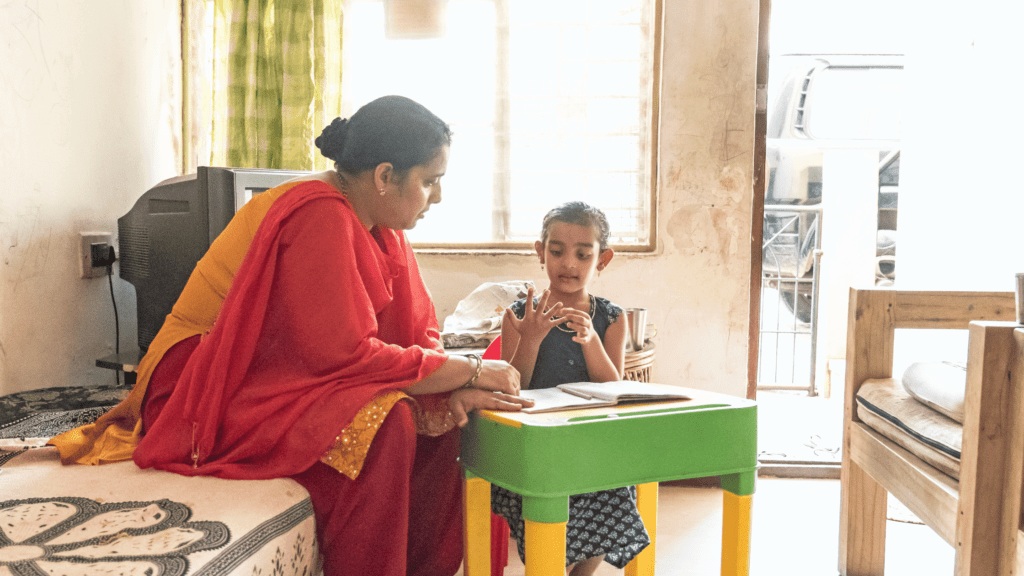Traditional education has its own merits but falls short while following a one-size-fits-all approach. Homeschooling has emerged as an empowering alternative. Welcome to a journey where your child’s education becomes a personalised adventure, where the classroom extends beyond four walls, and where the curriculum is as flexible as your imagination. As per a research by National home education research institute in the year 2021-22 around 6% of children were provided homeschooling by their parents.
Homeschooling parents can also enrol their children in the distance learning program offered by the National Institute of Open Schooling (NIOS), a government organisation. Here, children can take the necessary standardised tests and receive a valid certificate.
Let us explore the concept of homeschooling with significant benefits and potential drawbacks.
What is HomeSchooling?
Homeschooling is a type of education that emphasises educating a child at home using materials and resources available for open study. In order to aid children in learning, it places more emphasis on interests of the child rather than adhering to the traditional structure of one-size-fits-all. The parents lay the groundwork for homeschooling by focusing on the child’s fundamentals and taking on the responsibility of their formal education. Children pick up knowledge through connections they make at home, first-hand experience, and guidance from family members or tutors hired.
Parents can choose their own curriculum and create a schedule that suits the needs of the child. When it comes to homeschooling, there are no set rules. Parents and children collectively choose the ideologies, set up the educational frameworks, and work through the curriculum.
Pros of Homeschooling
The children who are homeschooled can thoroughly explore their interests and passions. The parents choose the child’s curriculum and schedule, which can be modified based on the child’s talents and areas for improvement. Video lectures, related materials, and advice from subject specialists can all be used to accomplish this. Flexibility, individual attention, and parent bonding are some of the pros of homeschooling.
- Customised Academics – One of the principal benefits of homeschooling is that the curriculum can be customised as per the requirement of the child. Lessons can be modified to fit the child’s interests and pace. They may also research themes of their choice and go further into things they are enthusiastic about.
- Flexible Schedule – Eversince technology and the internet has taken the world into stride, homeschooling has taken a new leap. It has made the flexibility for education at home easy. Parents are able to design a timetable that works as per their requirements. They are able to access the curriculum and tasks from anywhere.
- Parent-Child Bonds – Homeschooling results in better relationships between parents and their children. There is an open conversation between parent and child. This results in a greater understanding of a child’s strengths and shortcomings and a more harmonious household environment.
- Individualised Attention – The parents are able to provide the individualised attention to the child. Children who get this individualised education may find it easier to understand complex ideas and develop to their full academic potential. Parents can also opt for a park, library or even a cafe for teaching their child.
- Safe environments – Children who are homeschooled are protected from bullying and peer pressure. In the safe and encouraging setting of the home, the children tend to learn and develop better. This benefits their emotional health.
- Academic Excellence – Children can successfully prepare for academic success with a strong homeschool curriculum and with less stress from work pressure. Homeschooled students stand out for college admissions purely by having a unique experience to follow their best interest in-depth.
- No Commute – Homeschooling saves time and money because there is no longer a need for a daily commute. The repercussions of transportation on the environment are lessened.
Cons of Homeschooling
A greater responsibility comes along with the freedom in education. Parents must work as educators and supervisors. Although every parent has the potential to be their child’s best teacher, it is important to emphasise that planning and scheduling are essential components of the homeschooling puzzle. Limited co-curricular activities, lack of expert attention, work-life balance of parents are few of the disadvantages that come along with the homeschooling concept.
- Lack of socialising – Homeschooled children may miss out on important opportunities for peer socialising. Children will miss making friends, creating bonds and playing during lunch hours. The learning of diverse cultures is also absent during homeschooling.
- Limited Extracurricular Activities – Schools provide multiple options for extra curricular activities. Children who are home schooled miss the opportunity to engage themselves in such activities. The annual shows, trips, picnics are a fun part of usual schooling.
- Parental Responsibility – Parents must make a strong commitment to homeschooling. They have to fulfil the role of educators. Parents need to plan, instruct and assess the child’s development. These things need ample time and often are difficult for working parents to keep up their commitments.
- Expert Advice – Children who are homeschooled might not have access to qualified subject experts. The child’s education may be impacted by this constraint, particularly in subjects like advanced maths or science.
- Unvarying Testing – Some homeschooling families are concerned about state obligations and standardised testing requirements. For some parents, fulfilling these standards might be difficult and stressful.
- Questionable Quality – The competence and commitment of the parents have a significant role in the calibre of education in a homeschool environment. In certain instances, parents could lack the skills or resources needed to provide their children a well-rounded education.
Let us understand more in-depth with the table below:
| Aspect | Pros | Cons |
|---|---|---|
| Academic Flexibility |
|
|
| Individualized Attention |
|
|
| Flexible Schedule |
|
|
| Safety and Environment |
|
|
| Closer Family Bonds |
|
|
| Individualized Learning Pace |
|
|
| Protection from Negative Influences |
|
|
It’s important to note that the effectiveness of homeschooling can vary based on the individual child, the family’s commitment, and the resources available. Families considering homeschooling should carefully weigh these factors and consider their unique circumstances.
Take Away Words
Before diving into homeschooling, careful consideration is essential. It involves a comprehensive assessment of the child’s unique needs, the family’s lifestyle, and the available resources. While some children thrive with individualized instruction and specialized curriculum design, others may miss out on the social interactions and subject-specific expertise found in traditional schools. Ultimately, the decision to homeschool or not should be rooted in what serves the best interests of both the child and the parent. It’s a journey that demands thoughtful planning and commitment.
FAQs
-
What are the advantages of homeschooling online?
-
Is it better to homeschool or public school?
- Do you need a teacher for homeschooling?
While not mandatory, having a teacher or parent with teaching skills can enhance the homeschooling experience. They can provide structure, guidance, and ensure a well-rounded education. However, various resources, online programs, and support networks also exist for parents less familiar with teaching methods.
- What age should you start homeschooling?
Homeschooling can start at any age, depending on family preferences. Some begin in preschool, while others start during elementary or secondary school years. Flexibility is a key advantage, allowing parents to tailor education to their child’s developmental stage and individual needs.




